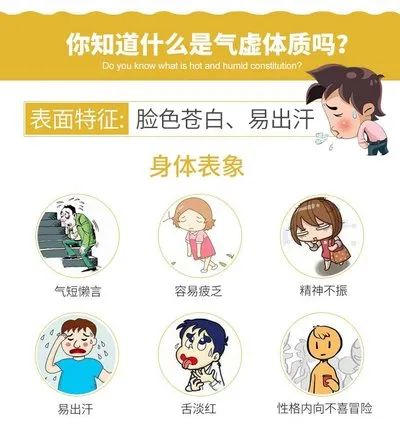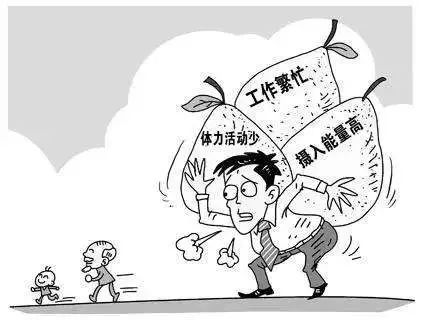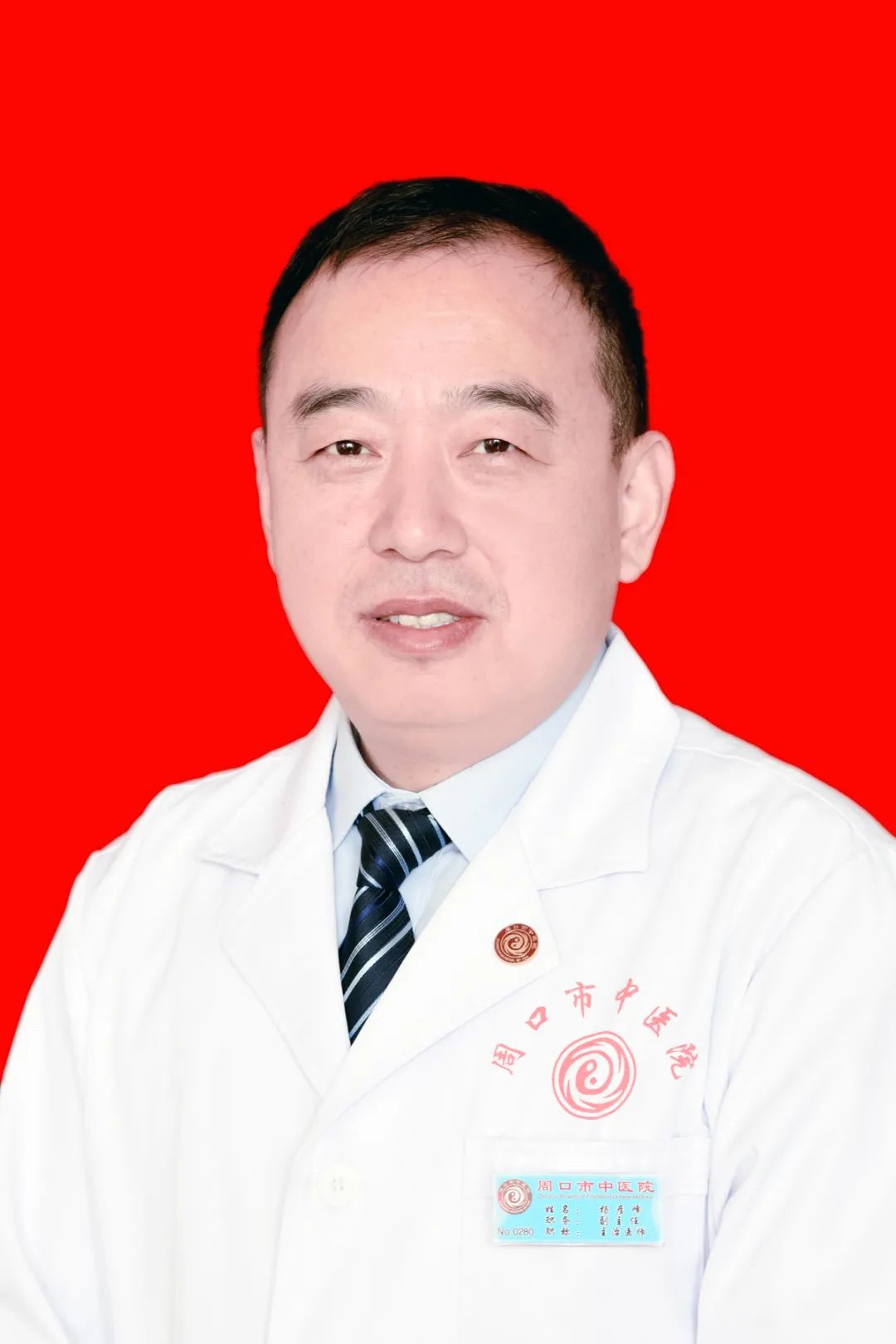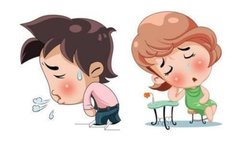
Many people find themselves feeling exhausted and often want to lie on a soft bed; they speak weakly, their voices becoming increasingly faint, and after just a few words, they are out of breath; their memory is also deteriorating, forgetting where they placed recently purchased items; once competitive individuals now feel lazy and disinterested, lacking the desire to move or speak, and their hearts seem to be growing weaker, occasionally fluttering, yet ECG tests show no issues… You may ask yourself daily, what is wrong? Am I sick or just tired? All these are manifestations of Qi deficiency.If the lung Qi is insufficient, it cannot support the throat, leading to a weak voice and breathlessness after speaking a few words; if the spleen Qi is deficient, the muscles throughout the body will also be weak; if the heart Qi is insufficient, the heartbeat will lose its rhythm, occasionally struggling to beat irregularly; if the defensive Qi is low, it is as if the city walls have fallen, allowing pathogens to invade, resulting in frequent colds. Qi is the fundamental substance that sustains life activities in the human body; it is the body’s energy. Qi deficiency refers to a lack of this energy, a state of low energy. In Traditional Chinese Medicine (TCM), Qi includes Yuan Qi (Original Qi), Zong Qi (Gathering Qi), Ying Qi (Nutritional Qi), Wei Qi (Defensive Qi), and the Qi of the five organs and six bowels.Qi deficiency primarily indicates a weakness in Yuan Qi. Due to the low function of Yuan Qi, the functions of the five organs and six bowels will also decline, leading to an overall inability to function normally, as the human body is a whole, and balance is key. For example, Yuan Qi deficiency can lead to heart Qi deficiency, which in turn cannot promote blood circulation, resulting in fatigue and weakness; Yuan Qi also affects spleen Qi, and a deficiency in spleen Qi can lead to digestive dysfunction.
Qi is the fundamental substance that sustains life activities in the human body; it is the body’s energy. Qi deficiency refers to a lack of this energy, a state of low energy. In Traditional Chinese Medicine (TCM), Qi includes Yuan Qi (Original Qi), Zong Qi (Gathering Qi), Ying Qi (Nutritional Qi), Wei Qi (Defensive Qi), and the Qi of the five organs and six bowels.Qi deficiency primarily indicates a weakness in Yuan Qi. Due to the low function of Yuan Qi, the functions of the five organs and six bowels will also decline, leading to an overall inability to function normally, as the human body is a whole, and balance is key. For example, Yuan Qi deficiency can lead to heart Qi deficiency, which in turn cannot promote blood circulation, resulting in fatigue and weakness; Yuan Qi also affects spleen Qi, and a deficiency in spleen Qi can lead to digestive dysfunction. The characteristics of a Qi deficiency constitution include a pale complexion, shortness of breath, low and timid voice, reluctance to speak, easy fatigue, and susceptibility to colds. Some children frequently catch colds, a common clinical condition known as recurrent respiratory infections, requiring several hospital visits each month for intravenous therapy. They may feel better temporarily after treatment, but the colds recur after a while. At this point, through a combination of body constitution assessment, disease differentiation, and syndrome differentiation, we can confirm that they have a Qi deficiency constitution. In other words, a Qi deficiency constitution is a state of long-term insufficient Qi.To understand Qi deficiency constitution, it is essential to clarify two concepts: Qi deficiency and Qi deficiency constitution. Qi deficiency is a syndrome in TCM. You may experience symptoms of Qi deficiency during periods of illness or fatigue, but once you recover or rest for a while, this state of “Qi deficiency” disappears; however, when we refer to Qi deficiency constitution, we are talking about a long-term low function of Qi in the body, which constitutes a Qi deficiency constitution.The nature of Qi is movement, but if you are always lying down and inactive, Qi cannot move and expand normally, leading to a slowdown in Qi circulation and obstruction of Qi flow. When Qi flow is impaired, the first organ affected is the spleen. The spleen is located in the middle of the body and acts as a transfer station for Qi, affecting its rise and fall. “The spleen governs the four limbs”; if the limbs are inactive, it will naturally further impact the spleen’s function. Therefore, individuals who are bedridden for long periods often have poor appetites. Poor transformation and transportation lead to a decreased ability to absorb the essence of food, resulting in less postnatal Qi production, which naturally harms Qi.There are two causes of Qi deficiency constitution: one is congenital insufficiency, and the other is acquired malnutrition. But what exactly causes acquired malnutrition?
The characteristics of a Qi deficiency constitution include a pale complexion, shortness of breath, low and timid voice, reluctance to speak, easy fatigue, and susceptibility to colds. Some children frequently catch colds, a common clinical condition known as recurrent respiratory infections, requiring several hospital visits each month for intravenous therapy. They may feel better temporarily after treatment, but the colds recur after a while. At this point, through a combination of body constitution assessment, disease differentiation, and syndrome differentiation, we can confirm that they have a Qi deficiency constitution. In other words, a Qi deficiency constitution is a state of long-term insufficient Qi.To understand Qi deficiency constitution, it is essential to clarify two concepts: Qi deficiency and Qi deficiency constitution. Qi deficiency is a syndrome in TCM. You may experience symptoms of Qi deficiency during periods of illness or fatigue, but once you recover or rest for a while, this state of “Qi deficiency” disappears; however, when we refer to Qi deficiency constitution, we are talking about a long-term low function of Qi in the body, which constitutes a Qi deficiency constitution.The nature of Qi is movement, but if you are always lying down and inactive, Qi cannot move and expand normally, leading to a slowdown in Qi circulation and obstruction of Qi flow. When Qi flow is impaired, the first organ affected is the spleen. The spleen is located in the middle of the body and acts as a transfer station for Qi, affecting its rise and fall. “The spleen governs the four limbs”; if the limbs are inactive, it will naturally further impact the spleen’s function. Therefore, individuals who are bedridden for long periods often have poor appetites. Poor transformation and transportation lead to a decreased ability to absorb the essence of food, resulting in less postnatal Qi production, which naturally harms Qi.There are two causes of Qi deficiency constitution: one is congenital insufficiency, and the other is acquired malnutrition. But what exactly causes acquired malnutrition? 1. Excessive fatigue can damage QiTCM states, “Labor depletes Qi.” We see that many people’s colds occur during periods of fatigue. If you utilize energy within a normal range and have a regular and sufficient intake of nutrients to replenish it, then your Qi will deplete slowly. However, if you overexert yourself without timely replenishment, it creates an imbalance between energy expenditure and supply.2. Prolonged bed rest can also damage QiThe Huangdi Neijing states: “Prolonged lying down causes Qi mechanisms to not extend, thus damaging Qi.”Predispositions to diseases include colds, asthma, allergic rhinitis, chronic bronchitis, obesity, nephroptosis, gastroptosis, uterine prolapse, rectal prolapse, habitual constipation, forgetfulness, low blood pressure, premature beats, coronary heart disease, as well as neuroses and mental disorders.
1. Excessive fatigue can damage QiTCM states, “Labor depletes Qi.” We see that many people’s colds occur during periods of fatigue. If you utilize energy within a normal range and have a regular and sufficient intake of nutrients to replenish it, then your Qi will deplete slowly. However, if you overexert yourself without timely replenishment, it creates an imbalance between energy expenditure and supply.2. Prolonged bed rest can also damage QiThe Huangdi Neijing states: “Prolonged lying down causes Qi mechanisms to not extend, thus damaging Qi.”Predispositions to diseases include colds, asthma, allergic rhinitis, chronic bronchitis, obesity, nephroptosis, gastroptosis, uterine prolapse, rectal prolapse, habitual constipation, forgetfulness, low blood pressure, premature beats, coronary heart disease, as well as neuroses and mental disorders.
Personal Profile

Yang Yanfeng, Deputy Director of the Rehabilitation Center, graduated from Henan University of Traditional Chinese Medicine. Member of the 3rd and 4th CPPCC of Zhoukou City, Executive Director of the Zhoukou Rehabilitation Medicine Association, Vice Chairman of the Community (Grassroots) Rehabilitation Branch of the Zhoukou Rehabilitation Medicine Association, Executive Member of the Acupuncture, Tuina, and Rehabilitation Committee of Zhoukou City, and a member of the Rehabilitation Committee of Traditional Chinese Medicine for Bone Diseases in Henan Province. Awarded the title of Advanced Individual in Aid to Xinjiang in 2014, and has received multiple honors as an “Advanced Worker” and “Outstanding Physician”.
Specialties:Utilizes specialized TCM therapies such as small needle knife, blade needle, and acupoint injection to treat painful diseases, including periarthritis of the shoulder, lumbar disc herniation, lumbar spinal stenosis, ankylosing spondylitis, hip joint synovitis, knee joint synovitis, and sports injuries.
(Images sourced from the internet)
Editor: Yang Chenxi
Chief Editor: Li Qianping
Reviewer: Sun Jun

